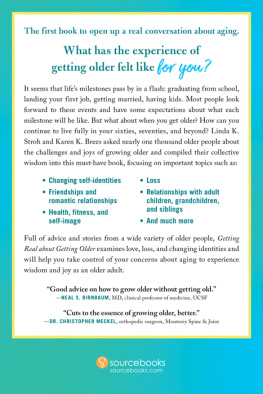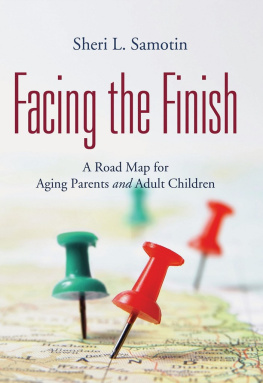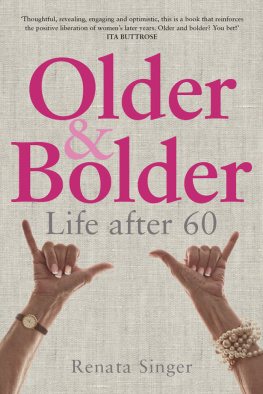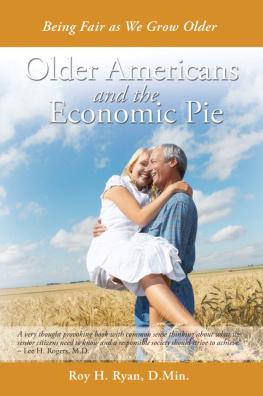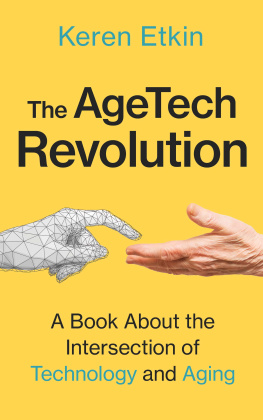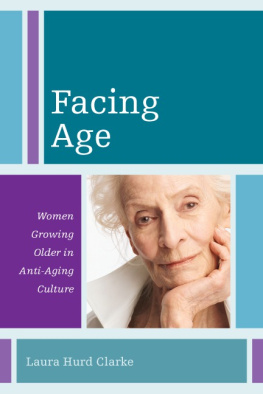Copyright 2018 by Linda K. Stroh and Karen K. Brees
Cover and internal design 2018 by Sourcebooks, Inc.
Cover design by The Book Designers
Cover image grop/Shutterstock
Internal design by Danielle McNaughton/Sourcebooks, Inc.
Sourcebooks and the colophon are registered trademarks of Sourcebooks, Inc.
All rights reserved. No part of this book may be reproduced in any form or by any electronic or mechanical means including information storage and retrieval systemsexcept in the case of brief quotations embodied in critical articles or reviewswithout permission in writing from its publisher, Sourcebooks, Inc.
This publication is designed to provide accurate and authoritative information in regard to the subject matter covered. It is sold with the understanding that the publisher is not engaged in rendering legal, accounting, or other professional service. If legal advice or other expert assistance is required, the services of a competent professional person should be sought. From a Declaration of Principles Jointly Adopted by a Committee of the American Bar Association and a Committee of Publishers and Associations
This book is not intended as a substitute for medical advice from a qualified physician. The intent of this book is to provide accurate general information in regard to the subject matter covered. If medical advice or other expert help is needed, the services of an appropriate medical professional should be sought.
All brand names and product names used in this book are trademarks, registered trademarks, or trade names of their respective holders. Sourcebooks, Inc., is not associated with any product or vendor in this book.
Published by Sourcebooks, Inc.
P.O. Box 4410, Naperville, Illinois 60567-4410
(630) 961-3900
Fax: (630) 961-2168
sourcebooks.com
Library of Congress Cataloging-in-Publication Data
Names: Stroh, Linda K., author. | Brees, Karen K., author.
Title: Getting real about getting older : conversations about aging better / Linda K. Stroh, PhD, and Karen K. Brees, PhD.
Description: Naperville, Illinois : Sourcebooks, [2018] | Includes bibliographical references and index.
Identifiers: LCCN 2018010650 | (pbk. : alk. paper)
Subjects: LCSH: Aging. | Aging--Psychological aspects. | Aging--Physiological aspects.
Classification: LCC QP86 .S755 2018 | DDC 612.6/7--dc23 LC record available at https://lccn.loc.gov/2018010650
To my familyGreg, Angie, Joe, Brad, Brandy, Brayden, and Brookewho make life meaningful in indescribable ways, and to my treasured friends throughout my life who have helped me grow older, better.
Linda
To Harmon and Annninety-three years old and the youngest in spirit.
Karen
Table of Contents
Introduction
WHATS THIS AGING
THING ALL ABOUT?
Old people dont wear jeans. Old people dont listen to rock music. And old people certainly dont put selfies on Facebook. Those may be commonly held beliefs among young people about their parents and grandparents, but of course, older people do all of these things.
While we may love our iPhones, iPads, and selfies as much as the younger generation, our bodies and minds are changing. Although we may not want to admit it, its true: were getting old. In fact, we are old! As this book goes to press, Linda is seventy, and Karen is nearly seventy-two. Theres no denying itwe are officially old . That realization was the impetus for our writing this book.
We cant figure out how it happened, and we cant believe we were so unprepared for it, but here we are. And, after some reflection, weve concluded that getting old doesnt have to be something we dread or worry aboutits not a bad thing. In fact, we believe our older years can be the very best ones of our lives. After reading this book, we hope you will agree.
Getting Real about Getting Older is neither a research study nor an academic undertaking. We are not attempting to argue a point or contribute to the already extensive academic literature on the topic of aging. Rather, our interest over the course of three years of conversations with people aged sixty-five and older was in discussing the physical and psychological experiences of aging with as many people as we could. We reached nearly one thousand participants eager to discuss their feelings about growing older. What we found special and unique about our conversations with our diverse group of aging respondents was how willing they were to share their deepest and most gut-wrenching experiences, along with their insights into the happier aspects of aging.
We soon realized that few of our respondents had ever been asked their thoughts about growing older, and for many, this was the first time they had thought seriously about the topic. They were eager to answer questions, ask questions, offer advice, and help us in our quest to discover how to grow older, better .
We developed a broad-spectrum questionnaire that invited respondents to share their ideas on a variety of topicsfrom relationships with spouses, partners, and their adult children, to the role of a belief system in their lives. We asked about love, loss, changing identities, and any lessons learned along the way. We invited our respondents to speak about their problems with their adult children, as well as the joys of grandparenting and great-grandparenting. We asked them to respond to our suggested topics or speak whatever was on their minds. The topics they chose were ones that people struggle with throughout their livesrelationships, loss, family, health, sex. We discovered that every issue we face as younger people takes on a different hue as we age.
Our respondents repeatedly told us that only adolescence had been as physically and emotionally challenging as this time of life, and they were unprepared for the dramatic physical, psychological, and emotional changes taking place in their later years. That was an important point, and it reinforced our belief that we had, with this book, the chance to change lives by providing comfort, information, and, in a very real sense, friendship for readers experiencing the challenges and joys of aging.
We began by chatting with a wide spectrum of people sixty-five and older, asking what issues were most important to them during these later years of their lives. We emailed our survey to everyone we knew; handed it out to friends, family, and neighbors; and posted it on every Listserv we belonged toand a few we didnt. We contacted relevant community and book groupsif older people were there, we were too, ready to talk about aging. We struck up conversations at the airport, in line at the grocery store, in the waiting rooms at doctors offices, at the Laundromatwherever we happened to be. We spoke with people we knew and with total strangers. Over coffee, with groups of friends, we discussed the issues common to all of us sixty-five and older. We read magazine articles and consulted the academic literature about aging, looking for examples to give clarity and support to each Reality Check, the helpful tips we include in each chapter for dealing with aging-related issues. And we looked at government statistics on various health and longevity topics to explore common points of anxiety.
Throughout our book, weve included excerpts from conversations with our many respondents. In some cases, we edited for clarity and paraphrased content taken from group discussions and interviews. Many of our respondents shared similar stories, and we combined the highlights from these stories to create a narrative of these common experiences. We mainly focused on problems we may encounter as we age, although we do take some time to also highlight the more positive aging experiences we all have enjoyed. To guarantee our respondents anonymity, we omitted names from our quotes and replaced them with sometimes humorous, other times unusual, descriptors. We had an inherent advantage in initiating conversations with our respondentswe were part of the group we were seeking to understand. Relating to older people came naturally to us. We simply wanted to know what people were thinkingwhat their concerns and experiences were with getting older. Our goal was to provide a snapshot of their lives. We wanted our readers to know they were not on this journey alone, that many others shared their concerns about aging and many had similar stories to tell. Where concerns were raised by some, others provided responses and advice. As a result, our book is essentially a series of shared conversations that revealed to us the heartbeat and the soul of older America.

